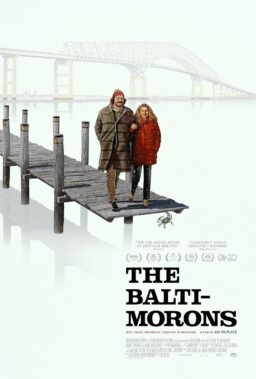Documentarian Bryan Fogel had a hell of a year back in 2017—his debut “Icarus” became an instant must-see among audiences at Sundance, especially for how it turned the concept of “’Super Size Me’ but for steroids” into a concrete condemnation of Russia’s Olympic doping history. Quickly picked up by Netflix, it went all the way to win the Best Documentary Oscar, with a word-of-mouth that maintains to this day. (If you haven’t seen it, you should. It’s on Netflix.)
Fogel proves that he is a major documentary storyteller with his completely shocking and gripping follow-up “The Dissident,” which assembles all of the many pieces behind Saudi journalist Jamal Khashoggi’s assassination into a comprehensive narrative, and also an extremely damning portrait for the worrisome force that is the monarchy in Saudi Arabia. Fogel’s film does not just include the harrowing tale of Khashoggi’s horrific mystery, but an in-depth look at how Crown Prince Mohammad Bin Salman, who is directly accused in the film of being involved with the murder, has fostered a society that relies on silencing its critics, and manipulating people of power. Among its many shocking revelations, delivered by intelligence officials who speak on camera, the movie goes so far as to say that Jeff Bezos was personally compromised by MBS in a way that made the entire theater at yesterday’s world premiere gasp with great discomfort. That’s just one of the many things that Fogel doles out to audiences with his thriller-paced doc, which needs to be seen by as many people as possible, as quickly as possible.
“The Dissident” has a lot of different narrative lines, many of them featuring stuff that you likely do not know. In part, it’s about building a wealth of evidence against Saudi Arabian government concerning the death of outspoken critic Khashoggi, with Turkish police, United Nations officials and more discussing the investigation in detail. It’s also about the current situation of a man named Omar, an activist living under government protection in Montreal, Canada, who linked up with Khashoggi and started an online movement against an expansive force of Twitter trolls supported by the Saudi Arabian government.
And on top of all of that, the movie is also dedicated to humanizing Khashoggi, sharing with us his big smile, and the story of his relationship with his fiancée, Hatice Cengiz. Among its intense moments, “The Dissident” shows its big heart, which turns into its will to fight, as Hatice is shown making a speech about Khashoggi’s death at the UN.
Fogel wants to make sure you pay attention to all of this, and uses an approach that is openly flashy with music and quick cuts (if he wanted to transition to making a Jason Bourne movie, he’d already know how to do it). That intensity of documentary filmmaking can be a bit much at times, and yet the film’s scandalous topics are so jarring (I’m only scratching the surface) that it feels like the best tactic to get it all out there. It’s only sporadically that the visuals can be distracting with their self-seriousness—a Twitter uprising of trolls vs. real Saudi activists (known as the “bees”) is presented as an intricately animated battle of shiny bugs, and it can be redundant to see Omar walking in slow motion though Montreal streets, which is often how his side of the story is reintroduced.
Like the best of journalism, “The Dissident” (which Fogel started making in October 2018) was directly inspired by the fight to preserve journalism, and seek justice. The revelations that Fogel finds throughout prove the vitality of free speech, and why democracy always needs the outspoken voices of people like Khashoggi, and also Fogel.

Sundance also had the premiere of the exact opposite kind of documentary with “Vivos,” directed by the one of world’s greatest rebel artists, Ai Weiwei. It’s a mournful look at the emotional aftermath of the shocking disappearance of 43 students from the Ayotzinapa Rural Teachers’ College back in September 2014. Their bus traveling through the town of Iguala, Guerrero was attacked by police forces and masked assailants; three people were killed, and the students that disappeared were never seen again. Their family members live with this incredible ache every day, which Weiwei is curious about. Though often beautifully composed, “Vivos” proves too unfocused to make the point that it wants to, and as potent as it can be to juxtapose images of grief with those of people taking to the streets, it stumbles over itself in its outrage.
Weiwei takes a very restrained approach to understanding this story, and its emotions. His camera is often still as people talk about a loved one who vanished, and how it affects them today. Behind them, as Weiwei never shoots them with close-ups, we can often see the homes that have walls adorned with pictures of the missing, or beds that have been undone. Some people have been able to, in a sense, move forward with this extreme sense of grief, even if that comes in the case of laughing. But other people, like a father, talks about how there is no joy in his life any more. Another person interviewed (none of them are given name credits) says that he fears not being home in case his son does come back, a type of weight that is unimaginable but Weiwei and his team capture with tenderness.
For the first hour or so of its two-hour run-time, “Vivos” focuses on documenting these many life stories, so as to lead toward its outrage against the Mexican government. A lot of people who have studied the case think that the Mexican police lied about what the official report said—and the government had the audacity to call it a “historic truth”—and so Weiwei moves from the small indigenous villages to the city, where researchers and officials talk about the likelihood of a cover-up, and how it’s related in part to America’s War on Drugs. The family members of the 43 bond together and make sure that their outrage is heard, which Weiwei uses a microcosm for a growing unrest against corrupt forces in Mexico.
All of the film’s major interests prove powerful to some degree, especially with Weiwei’s laid-back approach that forces audiences to sit across from many of these people and listen. Eventually, however, “Vivos” becomes an unwieldy collection of scenes of protest, of inserted shots of Mexican culture, and more bracing interviews about a deep sorrow. The different passions in “Vivos” start fighting for screen-time, and distract from its cumulative power.












